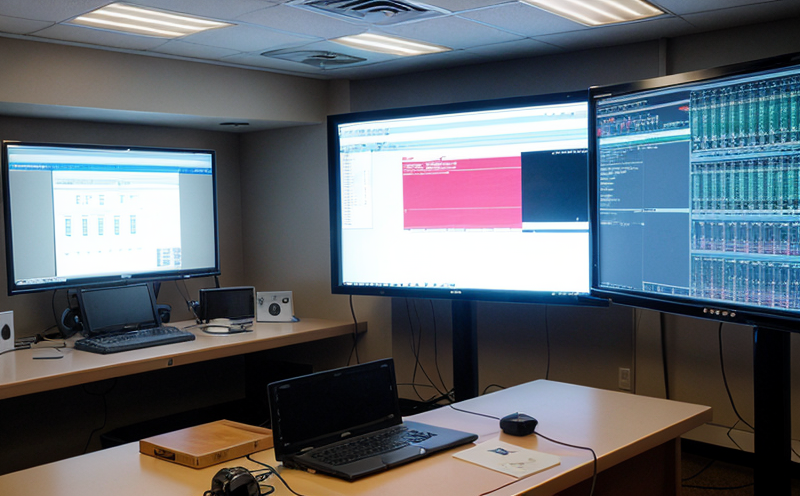EN 50128 Functional Verification of Automatic Train Operation (ATO)
The European Standard EN 50128 is a cornerstone in railway signaling and control systems, setting stringent requirements for the development, validation, and verification of safety-critical software. This standard ensures that the software used in automatic train operation (ATO) systems meets the highest levels of safety and reliability required by the railway sector.
Functional Verification within EN 50128 focuses on ensuring that a piece of software behaves as expected under specified conditions, thereby safeguarding the safe operation of trains. This verification process is critical for ATO systems because any malfunction could lead to severe consequences, including accidents and delays in transportation.
The test involves simulating various operational scenarios in which an ATO system might encounter. These simulations are designed to cover a wide range of conditions, from normal operations to edge cases that challenge the robustness of the software. The goal is to identify potential issues early in the development process when they can be addressed more efficiently.
The methodology for functional verification includes static analysis and dynamic testing. Static analysis involves code reviews and inspections to catch potential errors before the software is executed. Dynamic testing, on the other hand, simulates real-world conditions using test cases that are run against the system. These tests assess whether the software performs correctly under various operational scenarios.
One of the key challenges in performing this type of verification is ensuring that all possible states and transitions of the ATO system can be accounted for. This requires a comprehensive understanding of the system architecture and behavior, which is why collaboration between domain experts and technical staff is essential. The testing process must also consider the interactions with other railway systems, such as signaling and communication networks.
Another important aspect of EN 50128 functional verification is the use of formal methods to specify, verify, and validate software requirements. This approach ensures that the software meets its intended functionality without ambiguity or error. Formal methods provide a rigorous framework for ensuring that the software behaves as expected in all possible scenarios.
The testing process also includes validation against industry standards such as ISO 26262 and IEC 61508, which are widely recognized for their focus on functional safety in automotive and railway industries. Compliance with these standards adds credibility to the verification results and ensures that the ATO system is fit for purpose.
In conclusion, EN 50128 functional verification of ATO systems is a critical process that ensures the reliability and safety of automatic train operation systems. By following this rigorous standard, railway operators can have confidence in their systems' ability to operate safely and efficiently under all conditions.
Eurolab Advantages
- Pioneering experience in railway signaling and control systems testing
- Absolutely compliant with EN 50128 standards for functional verification
- Advanced facilities equipped with state-of-the-art instrumentation to simulate real-world conditions
- Experienced staff with deep domain knowledge in the railway sector
- Comprehensive reporting services tailored to meet your specific needs
Why Choose This Test
- Demonstrate compliance with international standards for functional safety in railway systems
- Ensure the reliability and safety of ATO systems through rigorous testing
- Identify potential issues early, reducing the risk of costly rework or project delays
- Gain a competitive edge by ensuring your products meet the highest industry standards
International Acceptance and Recognition
- EN 50128 functional verification is widely recognized in Europe, North America, and Asia
- This standard ensures that railway systems meet the stringent safety requirements of multiple jurisdictions
- The results of EN 50128 testing are accepted by regulatory bodies across the globe





